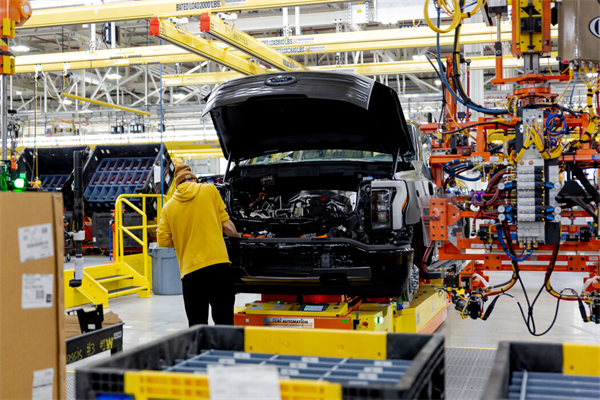
On December 1st, the Biden administration issued new regulations aimed at transferring more production of electric vehicle batteries and their raw materials to the United States. These regulations aim to limit the participation of Chinese companies in the supply of electric vehicle materials eligible for federal tax credits, and also prevent companies seeking to open battery factories in the United States with federal funds from purchasing raw materials from China or Russia.
The new regulations may drive the transformation of the automotive industry's supply chain
At present, the automotive industry still heavily relies on China's electric vehicle materials and components. Automobile manufacturers attempting to rebuild factories to produce electric vehicles are also facing enormous cost pressures, and some battery technologies in China are leading in both performance and price.
The Biden administration is attempting to reinvest billions of federal funds to change this situation and build an electric vehicle supply chain that belongs to the United States.
The policy of the US Treasury Department is insufficient to alleviate dependence on China
The bill also requires battery manufacturers to sign contracts or authorization agreements with China to ensure that certain rights are reserved for their projects. This clause aims to ensure that Chinese companies cannot actually control such projects.
Wisconsin Congressman Mike Gallagher said, "As China uses huge subsidies to suppress American manufacturers and firmly controls the global battery component market, these naive new regulations from the Treasury will open the door and allow US taxes to flow to Chinese companies."
May have a profound impact on the US electric vehicle market
The new regulations on battery components will come into effect in 2024, and the new rules for key minerals such as lithium, cobalt, and nickel will come into effect in 2025. These regulations may have a profound impact on the rapidly growing US electric vehicle market, with electric vehicles accounting for about 8% of new car sales in the third quarter of this year. Automakers and battery manufacturers said on December 1st that they are still reviewing new regulations and need time to determine how many models can receive tax credits.
Tesla announced on December 1st that starting from January next year, the two lowest priced Model 3 sedans will only receive half of the $7500 discount. After December 31st, the Model Y sport utility vehicle may not receive full subsidies either. The Model Y and Model 3 are the two best-selling electric vehicles in the United States. Tesla has purchased some batteries from CATL.
May suppress the sales of electric vehicles
These regulations also raise new questions about whether stricter requirements on the supply chain will continue to drive consumers to be more willing to rent cars rather than buy them. Fitzgerald Auto Mall is a dealership located in Florida, Maryland, and Pennsylvania. The company's president, Jack Fitzgerald, said he has seen a surge in electric vehicle rental customers. But he said that what hinders the sales of electric vehicles is not so much price, but rather concerns about their range and charging station availability.
Automotive industry lobbyists have warned that overly strict regulations may suppress sales of electric vehicles, urging the Biden administration to reach more trade agreements to ensure the supply of scarce battery minerals.
The new regulations pose challenges for manufacturers
The global electric vehicle industry still heavily relies on China, which is the world's largest producer and exporter of electric vehicles. China accounts for about two-thirds of the global production of battery packs and has mastered the refining of the vast majority of key minerals that provide power for electric vehicles. The new regulations also limit the amount of nickel that car manufacturers need to purchase batteries from Russia. Russia is one of the world's largest nickel producers.
How to develop a system that can track the source of all battery components in a long and often opaque supply chain will become a major challenge for manufacturers.

According to Bloomberg, a recent in-depth interview with Michael Dehal, senior portfolio manager at Raymond James' Dehal Investment Partnership, was released, focusing on the economic development prospects and potential risks of Canada and the United States in 2026.
According to Bloomberg, a recent in-depth interview with Mi…
TikTok Shop, the global e-commerce platform under ByteDance…
As a severe flu outbreak sweeps across the United States, w…
Recently, US Treasury Secretary Mnuchin publicly stated tha…
At the dawn of 2026, the United States launched a military …
From the stiff step when it first debuted in 2022 to demons…